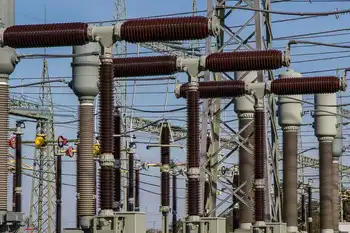Energy storage: the next big thing
By Canadian Manufacturing
Arc Flash Training CSA Z462 - Electrical Safety Essentials
Our customized live online or in‑person group training can be delivered to your staff at your location.

- Live Online
- 6 hours Instructor-led
- Group Training Available
“We need a range of storage options that can be skillfully matched to market applications in a way that they can compete [globally],” says Kirk Washington, general partner in cleantech investments for Yaletown Venture Partners in Vancouver. “The Japanese and Europeans are well ahead of us in energy storage endeavours and we’re coming up late as usual.”
“The world is changing and there’s a huge opportunity coming up. About 85 million barrels of oil are being burned every day and it’s unsustainable,” says Sankar Das Gupta CEO of Electrovaya — a Canadian developer and manufacturer of lithium ion battery systems.
But as of right now, Das Gupta says the “electric car” doesn’t exist. “I feel like I’ve been waiting for Godot for the last 15 years and Mr. Godot never shows up.”
In Canada, plenty research is conducted to make vehicle batteries lighter, smaller and cheaper, which will create opportunities for manufacturers.
Currently a lithium ion battery pack used in vehicles costs about $8,000, which Das Gupta estimates will be reduced by half by 2015.
Washington disagrees. Using the Chevrolet Volt — which has a 16 kilowatt-hour battery — as an example, he says the cost works out to about $500 per kilowatt hour compared to today’s consumer electronics, which is in the area of $300 per kilowatt hour.
“There’s a big misconception about the fact that this technology — particularly automotive — is far more expensive,” says Washington. “It is because it needs to be higher in power, it needs to have a manufacturing process that’s far more rigorous and it has to last 4,000 cycles. The Volt only uses 8.8 kilowatts per hour — operating at only 55 per cent — to get that cycle life.”
There is the possibility of using cobalt, nickel and cathode materials that will lessen the price.
“But unless we change the thermal dynamics of the electrochemical systems, that’s the way it is,” says Washington.
Of course there are other existing alternatives such as nickel metal hydride and lithium fluoride, but the electrochemical fundamentals are not nearly as sound as lithium ion.
“Lithium ion has a much higher energy density and is designed to have extremely high power density,” says Ken Rudisuela, president of Mibology Inc.
There is also a technical challenge that manufacturing must overcome.
“The quality of manufacturing is in the neighbourhood of seven sigma (one failure per 10 million), but that’s not good enough,” says Rudisuela. “We have to get in the realm of less than one failure per 100 million.”
Implementing a smart grid in order to support electric vehicles is another challenge that represents an opportunity for businesses.
Interestingly there could be a market for repurposing vehicle batteries, since they currently only use about 20 per cent of the lithium ion, leaving 80 per cent of its charge untapped.
Mark Tinkler, principal energy consultant for Toronto-based energy consultant firm, Emerging Energy Options Inc., says that vehicle batteries can be used in the utility industry.
“It’s an interesting double benefit for cost because you have a secondary market for the auto battery and a cheaper lithium ion battery for utilities,” says Tinkler. “That may be a market in reducing the cost.”
According to Duncan Stewart, Deloitte CanadaÂ’s director of research, Canada has an advantage in compressed air or gas energy storage solutions that offset grid demands.
Eco Energy CanadaÂ’s energy hub in the Goderich, Ont. area uses electricity produced at night to create compressed air that drives a gas turbine during the day. Normally gas turbines compress air and burn gas at the same time, which lessens the efficiency.
“If you eliminate the compression of air during the process, you can burn the gas at 70 per cent instead of 35 to 40 per cent,” says Tinkler. “This is extremely attractive, especially as gas prices go up.”
And there are many emerging alternative energy solutions for utility storage, such as pumped hydro — a method of pumping water into a higher reservoir then released back to a lower reservoir through a turbine to creating electricity — and flywheel technology, which generates kinetic energy produced by the rotational motion of a rotor.
“These can help provide regulations for a high frequency response to hours and hours, even days of energy storage,” says Tinkler.
Another emerging market is ultra capacitors. “It’s a small market, but it’s an area where a small company can potentially grow as the market matures,” says Washington. “The beauty of ultracapacitors is that they basically have an unlimited cycle life and are maintenance free.”
Ultracapacitors are both battery and capacitor technology mixed. But unlike current rechargeable batteries — like the ones used in laptops — ultracapacitors can recharge in minutes and have hundreds of thousands charge and discharge cycles.
As the energy storage landscape changes over the next five years, opportunities abound for investors and companies to get a piece of the market share.
Although Canada has a great history of developing innovative technology, it has a less than stellar track record for of commercializing it. Actually getting new technology to the marketplace will be the bump in the road Canadian companies will need to pave over if it wants to compete in this global market.











